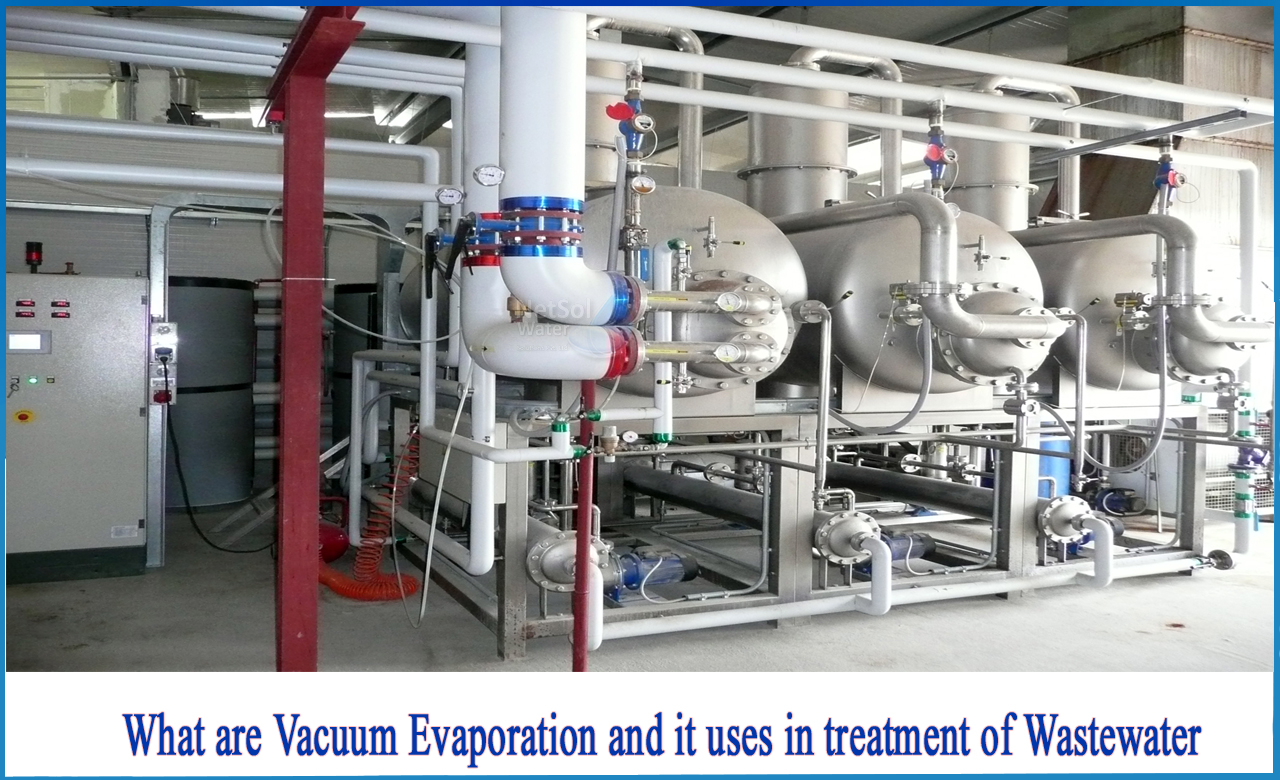What are vacuum evaporation and it uses in treatment of wastewater?
Vacuum evaporators have shown to be one of the most effective methods for treating and reusing wastewater in a variety of industries. Wastewater evaporators are the most effective technology for implementing a zero liquid discharge system, in which wastewater is separated into two streams: one containing solid waste with reusable resources (primarily raw materials and by-products), and the other containing high-quality water that can be reused.
Vacuum evaporation
Vacuum evaporation is a treatment system for aqueous effluents from a variety of industrial processes. The fundamental behind this process is that by concentrating particulates in effluent using vacuum evaporation, it is possible to reduce the volume of effluent used to remove and recycle treated water.
Process of vacuum evaporation for treatment of wastewater
To raise the concentration of chemicals dissolved in water, vacuum evaporation is used. The process is based on the relationship between water boiling temperature and air pressure. In the boiling chamber, the air pressure is reduced. This signifies that the water's boiling temperature is lower. For heating, a lower boiling temperature necessitates a less intensive energy supply. As a result, operating costs are extremely minimal.
Application of vacuum evaporation
This method is used to separate wastewater or contaminated solutions. The amount of waste to be disposed of is minimized, and the condensate can be returned to the operation. These applications can be found in the textile and graphic industries, where wash waters containing ink, colorants, and/or photo polymers are treated, as well as in the chemical sector, where used and upgraded materials are employed.
Effluent produced by vacuum evaporation
There are two outcomes from vacuum evaporation.
1: The first is a distillate, which is pure water that may be discharged or recycled back into the manufacturing process. The conductivity of the distillate is extremely low.
2: A concentrate or a concentrated solution is the second output. If the concentrate is a product or includes valuable substances, it can be used in other ways. If the concentrate becomes unusable, it must be disposed of properly.
Benefits of vacuum evaporation
Vacuum evaporation is a cost-effective solution because it does not require any chemicals or other consumables. Other benefits of this solution include:
a) Low usage of energy;
b) High quality distillate that can be recycled or used;
c) Works automatically without supervision;
d) Simple maintenance integration with existing systems;
e) Complementing other processes;
f) Allow the development of ZLD;
g) Corrosion-resistant;
h) Low temperature evaporation.
Conclusion
Wastewater may be reduced by 95 percent using vacuum evaporation. As a result, vacuum evaporators are required in Zero Liquid Discharge systems to recycle water in the manufacturing process. It does not require any added chemicals, which is another reason why vacuum evaporators are so environmentally benign. Evaporators are simple to use and maintain because they operate automatically 24 hours a day, seven days a week.
What do we offer?
Netsol Water is the solution to all your water and wastewater treatment needs. We personalize each evaporator to provide our customers with greater efficiency and longevity than any other wastewater equipment manufacturer.Our goal is to make the world's waste management systems more affordable, sustainable, and energy-efficient in order to address the problems of population growth, industrial expansion, and climate change.
For further assistance or product-purchase related query,
Call on +91-9650608473;
Or write us at enquiry@netsolwater.com



